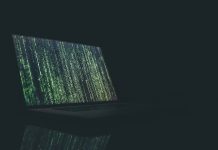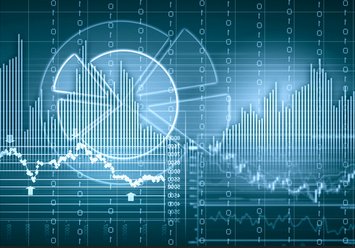March 1st 2017, spring is in the air at Kings Cross Impact Hub.
After a challenging winter, new shoots of vitality are appearing as 90 people gather to witness the birth of a new political platform: The Alternative UK.
Indra Adnan and Pat Kane co-founders of this bold initiative to reimagine politics welcome us into the space with food and drink. A convivial atmosphere permeates the UK’s first ever political “friendly.” Like a friendly football match Pat tells us we’re gathered for some serious play – perhaps the magic ingredient that’s been missing in contemporary politics.
In spite of some recent resurgence in party membership in the UK, only 2% of the population are members of political parties. The political class remains remote, aloof, inaccessible, uninspiring to the 98% and yet our destiny lies in their hands. As Indra says “the tail is clearly wagging the dog.”
Before the guests settle in to an initial networking session a loud conversation pierces the ‘normality’ of what’s going on room. Two young black actors perform a scene of urban territorial aggression. At the end a chair is smashed on the floor. Society is divided, deformed by an archaic system, as the earth burns we’re pitted against each other, fragmented, unable to co-create a positive future.
Politics is broken.
Later the affable Uffe Elbaek, leader of the Danish Alternativet party sits in the centre of the room, recounting the story of what inspired a new approach that has now led to the creation the Alternative UK platform. Fed up with the combative and life-draining culture of the Danish parliament, continually being told, “That’s just the way politics is, you can’t change it” was enough provocation for him to embrace the challenge and see if politics could be reimagined.
Image by Andy PaiceStarting a party in 2013 that crowdsources its political programme, motivated by the values of courage, empathy, openness, generosity, humility and humour rather than (left or right wing) ideology, Uffe was ridiculed and told his initiative was doomed to failure. In the 2015 Danish election the party surprised everyone gaining 5% of the vote and 9 MPs.
The Alternative vision sees society being recreated from the bottom up, through political laboratories where diverse citizens, creatives and entrepreneurs come together to reimagine society and formulate ideas for policy. In Denmark that has taken the form of party and a platform, whilst in the UK due to the limitations of the first-past-the-post system it will start as a platform with the aim of building influence and attraction.
The aim is to create an online and offline presence, a network of networks that creatively weaves together three realms: I, We and World.
Throughout the evening’s interactive presentations and performances we witness and participate in play, emotion, movement, laughter, song and reflection. Focusing on the ‘I’ realm gives space for people to explore what it is to be fully human. Given the two dimensional nature of our existing social and political structures this approach is designed to liberate the human spirit and potential.
The ‘We’ realm highlights how we interact with each other and create community. Annabelle MacFadyen standing behind a stall representing the town of Frome, Somerset shares an example of this. She highlights the Flatpack Democracy revolution that’s happened there since the election of an Independent council, enabling a flourishing and vibrant community life.
The ‘World’ realm, as presented by Simon Arnholm, recognises that “There are no domestic problems any more they are all global issues.” Globalisation is not just an issue of evil corporations, its positive message is the story of humanity coming together in a soulful global melting pot. To solve global problems, the Alternative aims to network across national boundaries rather than retreat into them.
Next Phil Teer with a brilliant presentation arguing the case for Universal Basic Income demonstrates the importance of the arts and the creative industries in the sparking of political movements. The Alternative sees “emotion, metaphor and narrative are as motivating for political citizens as argument, statistics and abstraction – if not the primary motivation in most cases.”
A core aspect of the evening (and upcoming friendlies and laboratories) is creativity and the generative spirit of artists and performers. It provides a shared felt sense, a glimpse of a human and life-affirming vision of what it means to be.
Indra says “We don’t really know what we’re doing.” Many might hear this as a sign of weakness from a movement with political ambitions. I’m wondering if this is not in fact the honest truth of all pioneers setting the agenda and stepping out into the unknown.
Image by Andy PaiceAs the evening draws to a close she invites the youngest people in the room (the future) to comment on the evening. They respond: “For this to mean something don’t just invite your friends – invite your enemies.” It’s a powerful reminder that whatever enthuses liberal minded folk at a gathering in central London also has to win over the hearts and minds of people outside of this bubble for real impact to be made.
Bridgette Amofah ends the evening with her soulful singing carrying a wave of emotion, evocative of these times and the challenges ahead:
Sometimes I feel like throwing my hands up in the air…
Sometimes I feel like saying “Lord I just don’t care”…
Sometimes it seems the going is just too rough…
Now and then it seems that life is just too much…
But you’ve got the love I need
To see me through
So What is the Alternative? I left the venue with a sense of it being a daring exploration into the unknowns of creativity, hope, realism, participation and yes that word that’s taboo in politics – “love.” That might just be what’s needed to see us through.
Andy Paice is London based Coach, Facilitator and Mindfulness trainer. The focus of his work/play is facilitating and catalysing new ways of working and living that are fit for the realities of the 21st century. One of his major passions is the creation of participatory democracy initiatives and amplifying awareness of new politics through the
Reinventing Democracy YouTube channel . He teaches Mindfulness in community and corporate settings and facilitates community meetings. Andy is passionate about authentic human connection and the emerging collaborative commons paradigm. Prior to these activities he lived and practised as a monastic in the Tibetan Buddhist tradition in France from 1998-2007 where he accomplished a traditional three-year group meditation retreat. In his spare time he enjoys Contact Improvisation dancing, eating curry and running From Me to We a meetup group he created. You can check out his website www.andypaice.net and follow him on Twitter @andypaice
























